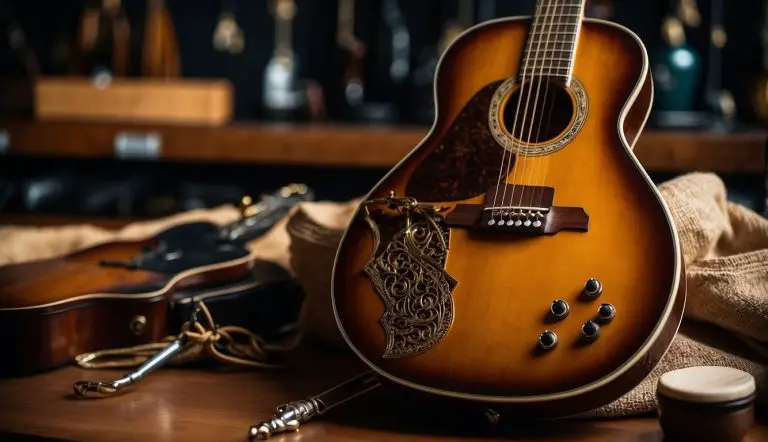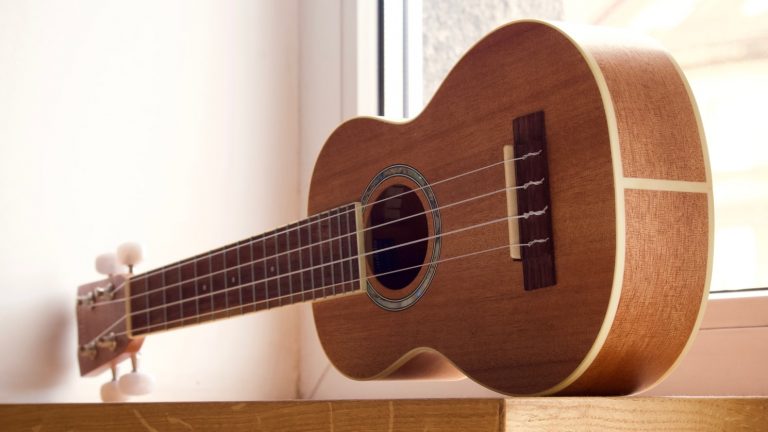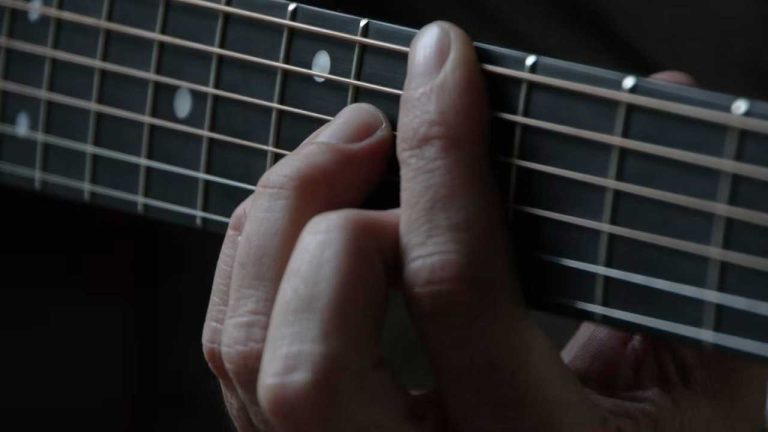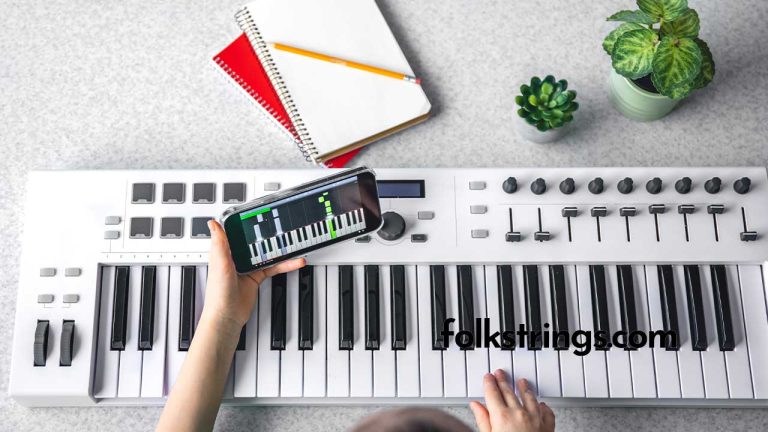Best Beginner Guitars: My Top Picks for Your First Strum
Folkstrings.com is reader-supported. When you buy through links on our site, we may earn a small commission.
Selecting your first guitar is a pivotal step in beginning your musical journey. It’s an exciting moment that comes with a fair bit of decision-making, as the right guitar can make a world of difference for a beginner.
With an array of shapes, sizes, and sounds, choosing a guitar that resonates with you both in terms of playability and aesthetic can encourage consistent practice and development.
From acoustic to electric models, there’s a perfect beginner guitar out there for everyone, tailored to suit various musical preferences and styles.
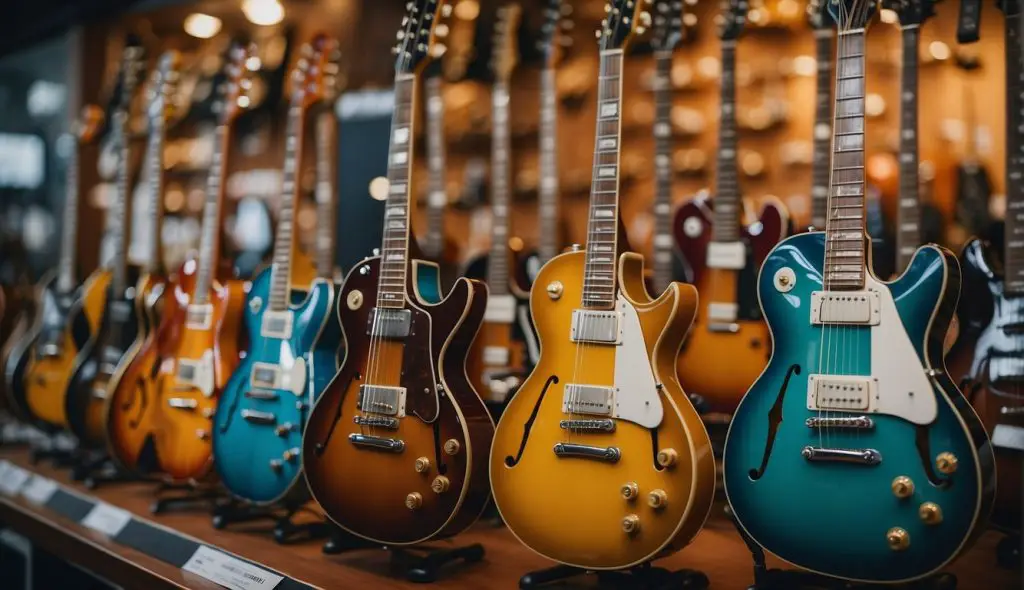
When I started playing, I quickly realized that the feel of the guitar in my hands was just as important as the sound it produced. Criteria such as the guitar’s body size, string type, and neck width strongly influenced my comfort and ability to learn.
Moreover, I learned that it’s essential not just to look for a quality instrument within my budget but also to consider its adaptability to different genres, which could cater to my evolving interests.
The journey to find that first instrument is often filled with questions and considerations, such as understanding the nuances between different models and knowing what to look for in terms of construction and durability.
Key Takeaways
- A beginner’s guitar should offer comfort and a sound that inspires consistent practice.
- The variety of guitar types caters to differing musical tastes and playing styles.
- Having a reliable guitar that accommodates growth is essential for budding guitarists.
What Are the Main Guitar Types?
When I’m discussing guitar types with beginners, I often focus on two main categories you’ll encounter: acoustic and electric guitars. Each has distinct characteristics that affect playability and sound, so let’s dive into the details.
Acoustic vs Electric
Acoustic guitars are typically strung with steel or nylon and produce sound through their hollow bodies. The tone of an acoustic guitar is warm and resonant. Beginners might find nylon-string classical guitars more finger-friendly due to their softer strings and wider fretboards.
On the other hand, electric guitars require amplification to produce sound. They come equipped with magnetic pickups that can be either single coils or humbuckers. Single coils typically yield a bright and crisp tone, while humbuckers offer a fuller and richer sound, reducing noise and interference.
Body Styles and Materials
The body style and materials of guitars greatly affect their tone and aesthetics.
- Acoustic guitars have different body shapes such as dreadnought, concert, and grand auditorium. These shapes influence the guitar’s volume and tonal quality. Materials for acoustic guitars include various woods like spruce or mahogany, which contribute to their unique sounds.
- Electric guitars have solid, semi-hollow, or hollow bodies. Solid bodies are durable and have a consistent tone, while semi-hollow and hollow bodies provide warmer tones. Electric guitars often use woods like alder, maple, or mahogany for the body and fretboard materials to affect their tone and sustain.
By understanding these basic categories and attributes, beginners can make more informed decisions when choosing their first guitar.
My Top Guitar Brands and Models for Beginners
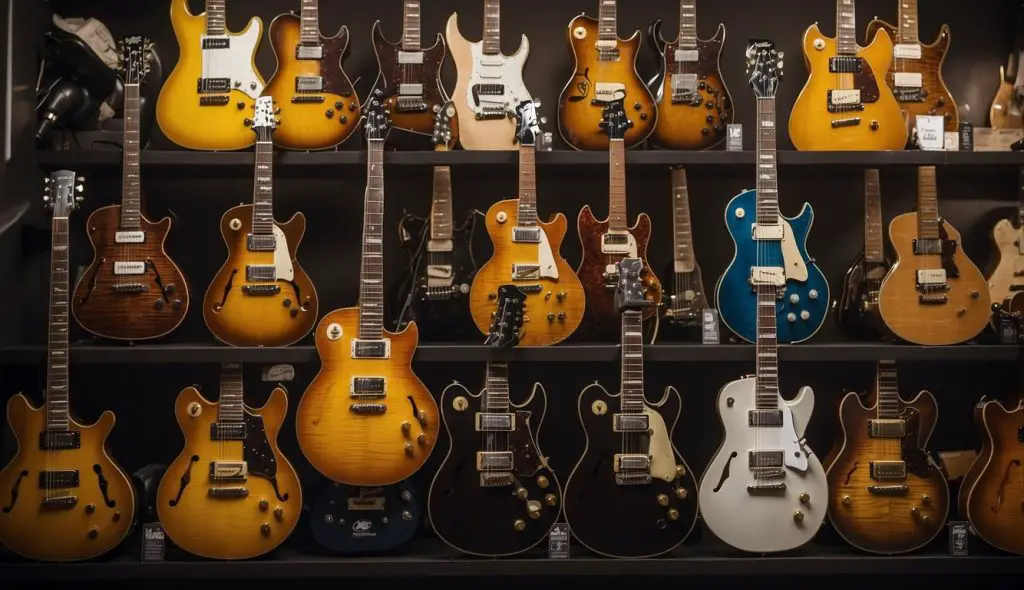
When I’m asked about the best guitars for rookies, I think it’s crucial to recommend instruments that offer a blend of playability, appealing tone, and solid build quality. This ensures a rewarding learning experience.
Best Acoustic Guitars for Beginners
Starting with acoustics, my go-to recommendation is the Yamaha FG800. It’s recognized for its excellent value and durability. Not only is this guitar accommodating for beginners, but its solid spruce top delivers a clear and resonant sound that even seasoned players can appreciate.
Another standout is the Taylor Swift Baby Taylor (TSBT), which includes the Taylor BT2 and Martin LX1E Little Martin. Despite being a signature model, these guitars are compact and more approachable for beginners. They’re great for younger players due to their size and also have a quality tone that makes practice sessions enjoyable.
If you’re a beginner with a slightly higher budget, the Martin LX1E Little Martin is a noteworthy choice. It’s a smaller-scale guitar that’s perfect for travel and for those with smaller hands, yet it still offers the prestigious Martin tone.
Best Electric Guitars for Beginners
For those leaning towards electric, the Squier Affinity Stratocaster strikes a perfect balance between affordability and quality. Designed by Fender, it offers a comfortable neck profile and a versatile sound that’s ideal for exploring different genres.
If you’re drawn to the iconic Les Paul design, check out the Epiphone Les Paul Beginner Guitar. Epiphone, a subsidiary of Gibson, provides that classic Les Paul look and sound without the Gibson price tag, but with enough quality to make you feel like you’re playing a premium instrument.
The Yamaha Pacifica 112V stands out due to its versatile pickup configuration, allowing you to experiment with a wide range of sounds. It’s a reliable option for my students who are unsure of their preferred genre.
Lastly, for those who want to dive into the rockabilly or blues scene, I’d recommend the Gretsch Streamliner. This guitar features a semi-hollow body that provides a distinctive sound suitable for those genres and is a joy to play.
My Buying Advice for Guitar Novices
When starting your guitar journey, two major considerations are where to make your purchase and how much to spend. I’ll guide you through each aspect to ensure you find the best fit for you.
Where to Buy
Local Music Stores: Walking into a local music shop can be a great start. The advantage is that you can try different guitars and get a feel for what suits you best.
Online Retailers: Places like Sweetwater offer a wide range of entry-level guitars. They also provide customer reviews, detailed product descriptions, and occasionally, online assistance to answer any queries you may have.
- Pros of Buying In-Store:
- You can try before you buy.
- Personalized advice from store staff.
- Pros of Buying Online:
- Broader selection of brands and models.
- Often more budget-friendly deals.
Setting a Budget
As a beginner, you don’t need to break the bank to get a quality instrument. I recommend setting a budget that aligns with value for money.
A good range to consider is between $100 to $500 for an entry-level guitar. Keep in mind that sometimes a slightly higher investment can lead to better quality and playability, which is essential for beginners.
- Budget Tips:
- Look for guitar bundles that include accessories like a bag, tuner, and extra strings.
- Check for seasonal discounts or clearance sales, which can offer excellent value.
Things I Look for in a Beginner Guitar
When I’m searching for the perfect beginner guitar, I prioritize comfort, quality, and affordability. It’s essential to find an instrument that feels good in your hands and has a solid build, without breaking the bank. Let’s dive into the specifics.
Neck and Scale Length
The neck and its scale length are crucial components I consider. I prefer a slim neck which is generally more comfortable for beginners to hold and play, especially for those with smaller hands.
A maple neck is sturdy and offers a bright tone, while a mahogany neck gives a warmer sound. As for scale length, a shorter scale makes fretting easier and reduces the reach needed, which can be very advantageous for new players.
Pickup Configurations
Pickup choices hugely affect a guitar’s sound. Single-coil pickups offer a crisp and clear tone, perfect for genres like pop or blues.
On the other hand, humbuckers provide a fuller and richer sound, reducing the hum that can come with single-coil pickups. For versatility, I look for a guitar that combines these pickups, known as an HSS configuration (a humbucker at the bridge and single-coils in the middle and neck positions).
Hardware and Build Quality
The build quality directly impacts the guitar’s durability and sound. For beginners, a poplar body is a great choice as it’s not only affordable but also provides a decent sustain and is lightweight.
I inspect the hardware closely—tuners should be smooth, the bridge must be stable for good sustain, and the fret ends shouldn’t be sharp. A well-crafted guitar inspires one to keep playing.
Starting Your Guitar Journey
As I venture into guiding you through selecting your first guitar and starting your practice, I will focus on the essentials for a strong foundation. I understand the excitement and, occasionally, the uncertainty that comes with learning a new instrument, which is why I’ll make sure to help you make an informed and enjoyable start.
Learning Basic Chords and Techniques
Starting with the basics is crucial, and there’s nothing more fundamental than learning basic chords and techniques. A versatile and user-friendly instrument for this stage is imperative.
- Best Beginner Acoustic Guitar: My go-to recommendation is a nylon-string guitar, as it’s gentler on the fingers. For durability and ease of play, look for a model like the Yamaha C40.
- Best Beginner Electric Guitar: If you lean toward electric, a Squier Affinity Stratocaster is known for its playability. It’s lightweight and boasts a variety of tones for different styles.
Remember, the key is not just to learn chords but also to practice transitioning smoothly between them. Dedicate time to mastering strumming patterns and simple riffs to build dexterity.
Maintaining Your Guitar
Maintaining your guitar ensures its longevity and quality of sound, which makes playing more rewarding.
- Acoustic Guitar Care: Keep it clean, regularly check for humidity, and replace strings as needed. Store your guitar in a case when not in use to protect it.
- Electric Guitar Upkeep: Maintenance for electric guitars is similar, but also includes taking care of the electronics. Wipe down the body and neck and occasionally check the integrity of its components such as the pickups and input jack.
Frequently Asked Questions
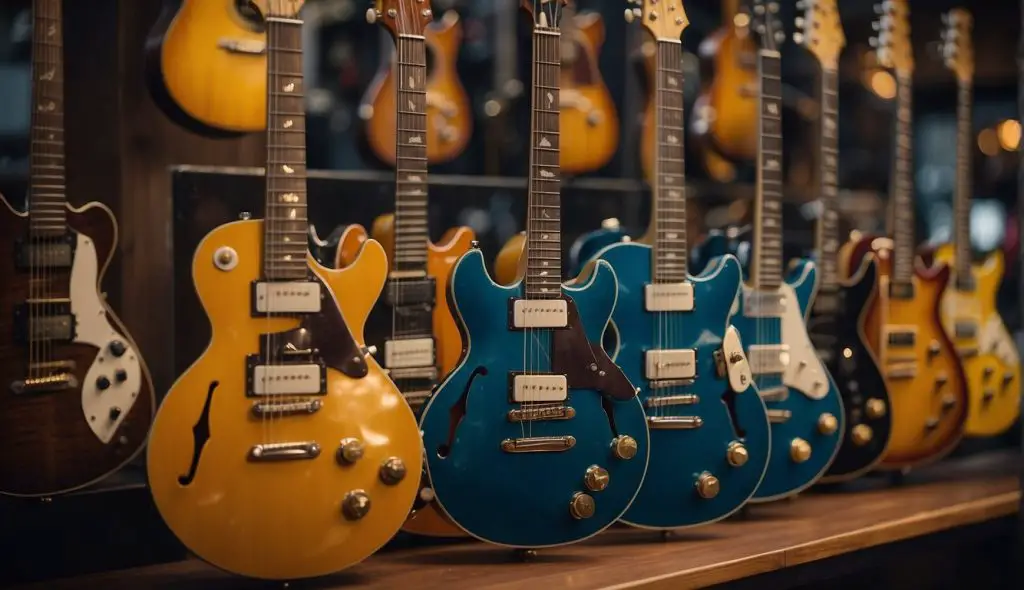
When you’re new to playing guitar, you likely have a lot of questions. I’ve compiled a few common ones to guide you through the basics of choosing and understanding your first guitar.
How can I choose the right guitar for a beginner?
Choosing the right guitar involves considering the player’s size, musical preferences, and budget.
Look for a guitar that’s comfortable to hold, with a neck that fits comfortably in your hand, and strings that are not too difficult to press down.
What are some recommended acoustic guitars for beginners?
For beginners, I recommend looking at models like the Yamaha FG800 or the Fender FA-115, which offer good playability and quality at a reasonable price.
They are durable and have a pleasant sound, making them great options for starters.
What’s a good beginner electric guitar to start with?
A solid beginner electric guitar is the Squier Affinity Stratocaster. It’s affordable, has a comfortable neck profile for new players, and is versatile enough to handle a variety of music styles.
Should beginners start with an acoustic or electric guitar?
The choice between an acoustic or electric guitar depends on your musical preferences. If you enjoy rock, pop, or blues, you might prefer to start with an electric guitar.
For folk, country, or classical music, an acoustic might be more appropriate. However, remember that acoustic guitars can be a bit harder on the fingers due to string tension.
What type of guitar pick should a beginner use?
I advise starting with a medium thickness pick, around 0.60 to 0.73 millimeters.
It offers a balance between flexibility and control, which can be easier for beginners to handle.
How does guitar size affect beginner adult players?
Guitar size can greatly impact comfort and playability.
Full-sized guitars are typically suitable for adults, but some may find smaller body guitars like concert or parlor models more comfortable, especially if they have a smaller frame or shorter reach.
Author Profile
-
Daniel Johnstone is an English writer with a love for stringed instruments from around the world.
He shares his love for these instruments through his writing for folkstrings.com, a website dedicated to all things related to folk string music.
Daniel's passion for music started at a young age, and he has since become an accomplished musician, playing guitar, cavaco, and recently, the harp.
His dedication to learning and sharing his knowledge of stringed instruments is evident in his insightful and engaging blog posts. Whether you're a seasoned musician or a beginner, Daniel's writing is sure to inspire and entertain you.
When he's not playing music or writing, you can find Daniel exploring new instruments and seeking out new sounds to share with his readers.
Latest entries
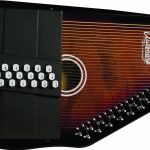 AutoharpApril 4, 2024What Is the Autoharp Made Of: Exploring Its Materials and Craftsmanship
AutoharpApril 4, 2024What Is the Autoharp Made Of: Exploring Its Materials and Craftsmanship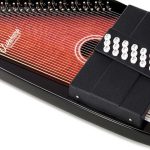 AutoharpApril 4, 2024Is Autoharp Easy to Play? Unveiling the Truth for Beginners
AutoharpApril 4, 2024Is Autoharp Easy to Play? Unveiling the Truth for Beginners AutoharpApril 4, 2024What Is an Autoharp Worth? Your Guide to Pricing and Value
AutoharpApril 4, 2024What Is an Autoharp Worth? Your Guide to Pricing and Value AutoharpApril 4, 2024Are Autoharp and Zither the Same Thing? Unraveling String Instrument Myths
AutoharpApril 4, 2024Are Autoharp and Zither the Same Thing? Unraveling String Instrument Myths
Affiliates:
This post may contain affiliate links that at no additional cost to you, the site may earn a small commission. We only recommend products we would use ourselves and all opinions expressed on this site are our own.
Accuracy Advice:
While we strive to provide up-to-date and accurate information, the content in this article may not reflect the most current research or medical guidelines. We encourage readers to do further research and consult with professionals for more personalized advice.
Our Recommendations:
The products and services mentioned in any of our articles are recommended based on our independent research and personal experience. We are not sponsored by any company. We aim to suggest products and services we believe are of high quality and could be beneficial to our readers.


